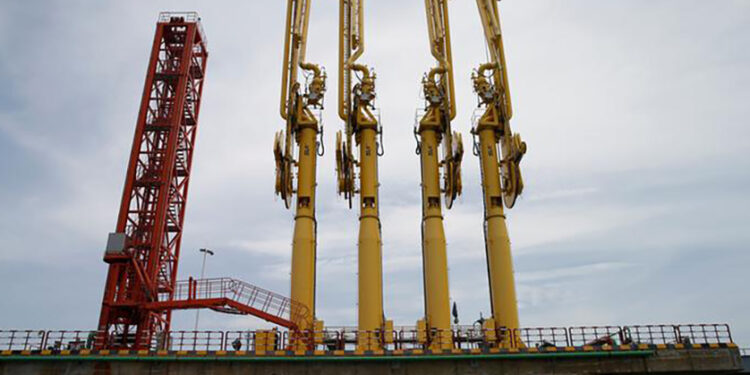As the Arakan Rohingya Salvation Army—dubbed a terrorist organization by the Myanmar government—attacked security forces and civilians in northern Rakhine, the 15-member UN Security Council (UNSC) met in New York.
Myanmar leaders do not need to sweat. They have a powerful friend: China.
As in the past, China maintained its unwavering support for its southern neighbor, regardless of whether the country is ruled by men in uniform or an elected civilian government.
UNSC members condemned the Rakhine violence, but, according to British Ambassador to the UN Matthew Rycroft, the council still supports State Counselor Daw Aung San Suu Kyi.
The UK requested the meeting on Myanmar days after the violence broke out: “A lot of us are hugely supportive allies of hers who have followed her progress with admiration from afar,” the ambassador told reporters.
But news emerged that China resisted stronger involvement by the UN council in addressing Myanmar’s crisis.
In March, China, together with Russia, blocked a brief UNSC statement when the 15-member body met to discuss the situation in Rakhine state.
In February, the UN’s human rights office accused the military of mass killings and rape of Muslims in Rakhine and burning villages following attacks on police outposts in the region in October last year.
The UN went as far as to accuse the military of crimes against humanity and possibly ethnic cleansing.
Both the government and military denied these charges and refused to cooperate with a UN fact-finding mission. China made sure to back up the Myanmar government.
Nikki Haley, the US ambassador to the UN, later issued a statement chastising Myanmar’s security forces on Thursday.
“As Burmese security forces act to prevent further violence, they have a responsibility to adhere to international humanitarian law, which includes refraining from attacking innocent civilians and humanitarian workers and ensuring assistance reaches those in need,” Haley said.
Senior military officials denied attacking villagers and said troops were deployed to protect police securing the area. According to them, the deployment of troops was thin.
A Key Ally
China continues to provide diplomatic protection to Myanmar as some Western nations press the government and military on the Rakhine issue.
More than ever, China has remained a key ally to the government and Daw Aung San Suu Kyi—who’s support in the West is now lukewarm at best.
China’s motives in backing Myanmar are said to include a desire to expand its foothold in Myanmar and acting to limit Western influence spreading among its neighbors.
As a major investor in Myanmar, China is looking for a seaport in Kyaukphyu, Rakhine State, on the Bay of Bengal—the country clearly has strategic interest in the Indian Ocean.
In May, Reuters reported China was looking to take a stake of up to 85 percent in the strategically important seaport in Myanmar as part of its “One Belt, One Road” initiative.
Beijing has been pushing for preferential access to the deep seaport of Kyaukphyu part of its ambitious infrastructure investment plan to deepen its links with economies throughout Asia and beyond, Reuters reported.
In April, during his official visit to Beijing, Myanmar President U Htin Kyaw signed an agreement with Chinese President Xi Jinping on a partially completed crude oil pipeline between western Myanmar’s Kyaukphyu and southern China’s Kunming.
The pipeline is part of the US$10 billion Kyaukphyu Special Economic Zone and there are also plans for a railway linking Yunnan Province and Myanmar, though it is thought to be suspended or under review.
As China expands its geo-political influence and opens up an economic corridor to its southern neighbors it needs stability in Rakhine State.
Beijing officials also recently invited ethnic Arakanese politicians to China. One of them was Dr. Aye Maung, chairman of the Arakan National Party and often referred to as a firebrand ethno-nationalist.
Dr. Aye Maung was elected as a lawmaker in May’s by-election. His party recently requested that army leaders send troops to northern Rakhine State and asked the government to declare a state of emergency in the region.
In April, Chinese special envoy for Asian affairs Sun Guoxiang visited Bangladesh and offered to tackle a diplomatic row between Bangladesh and Myanmar over the flight of the persecuted Rohingya.
As another major trade partner, Bangladesh also received assistance from China to improve infrastructure as part of the One Belt, One Road mega project.
Bangladesh and China signed deals on nearly 30 projects worth US$25 billion during President Xi Jinping’s visit to Dhaka.
It is important to note that until recently, China refrained from direct involvement in issues involving the Rohingya, as such actions could have been interpreted by Myanmar leaders and Arakanese politicians as “interference.”
But the rise in violence in an area of strategic importance to China will no doubt set alarm bells ringing in Beijing.
https://www.facebook.com/theirrawaddy/posts/1746115992099917

















